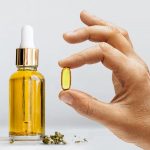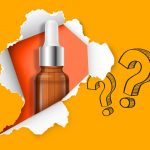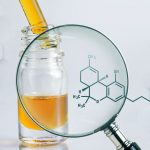Since CBD-based products gained a truly colossal following in recent years, a lot of people have expressed a legitimate concern if consuming such products could result in addiction.
In this article we’ll try to answer this important question for the most popular type of CBD product, which is of course CBD oil.
First of all, let’s check out the World Health Organization’s opinion related to cannabidiol and addiction. Their Expert Committee on Drug Dependence published a Critical Review Report in 2018, and in it they stated:
“In humans, CBD exhibits no effects indicative of any abuse or dependence potential.”
“At present, there are no case reports of abuse or dependence relating to the use of pure CBD.”
It’s important to understand that this review dealt with the effects of pure isolated CBD, and most CBD oils also contain different amounts of THC.
Unlike CBD, tetrahydrocannabinol (THC) is responsible for producing a psychoactive effect, and this cannabinoid found in both hemp and cannabis plants is also linked with psychological dependence.
CBD oils fall into two distinct categories: broad-spectrum and full-spectrum oils.
Broad-spectrum CBD oils are made from hemp plants, and they contain THC in very miniscule amounts (less than 0.3%).
This neglectable level of THC is the reason why broad-spectrum oils can be legally sold across the US, and the extremely low levels of tetrahydrocannabinol are unlikely to bring about any dependency issues.
On the other side of the coin, full-spectrum CBD oils are created from cannabis plants, and they contain much larger quantities of THC. These types of oil can be recreationally obtained only in states that have legalized cannabis, or with a prescription in states that have a medical cannabis program.
The difference in THC levels makes full-spectrum oils much more likely to cause withdrawal symptoms if a user would abruptly discontinue using them.
Another crucial aspect is that since CBD oils fall under the category of dietary supplements, they are currently not regulated by the Food and Drug Administration (FDA).
This allows a lot of companies that manufacture CBD oil to falsely label their products, and it is a personal responsibility of the user to find a high-quality CBD product.
In order to do so, there are several things to look out for. Firstly, it’s crucial that a CBD company has third-party testing readily available on its website. Results of independent laboratory tests guarantee the safety and purity of the products.
Such tests also show if the product in question contains any contaminants (such as pesticides, heavy metals and so forth), and they also clearly state the levels of both CBD and THC.
Another important aspect is the price tag of the oil. Producing a CBD oil of superior quality requires a lot of painstaking work, which is reflected in the final cost of the product.
If you come across an offer for CBD oil that sounds way too good to be true, chances are it probably is.
If you’d like to know more on how to properly choose a CBD oil for you, check out this article of ours.








